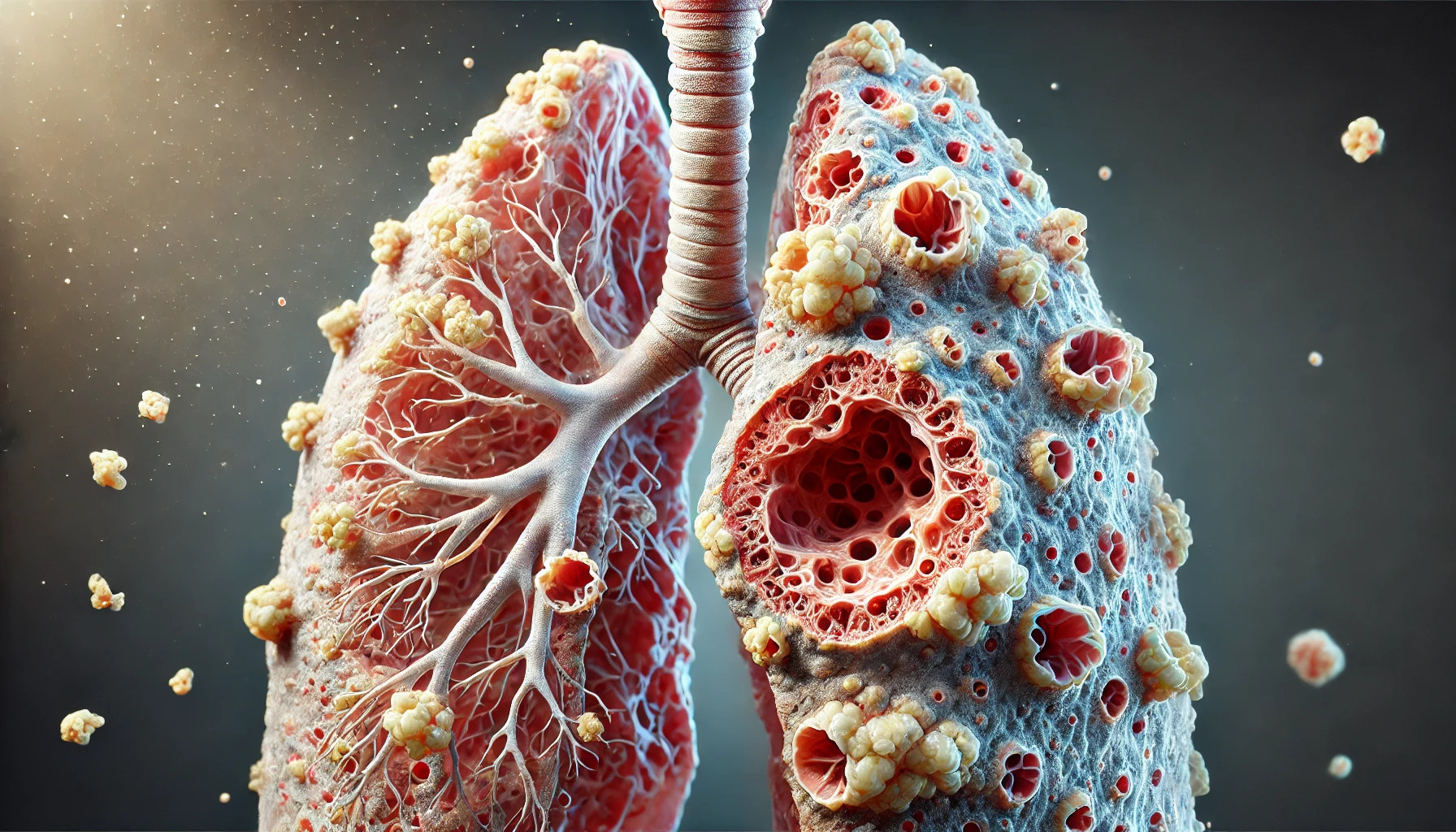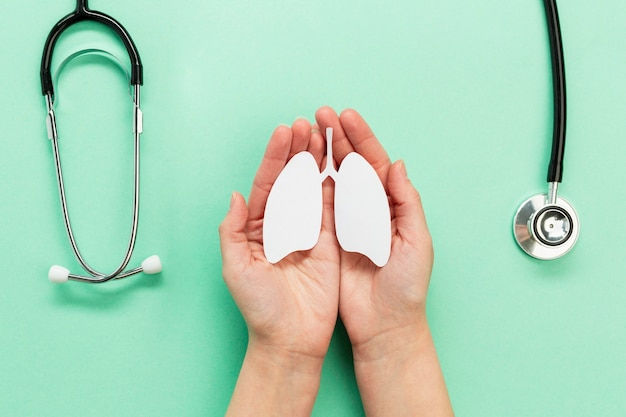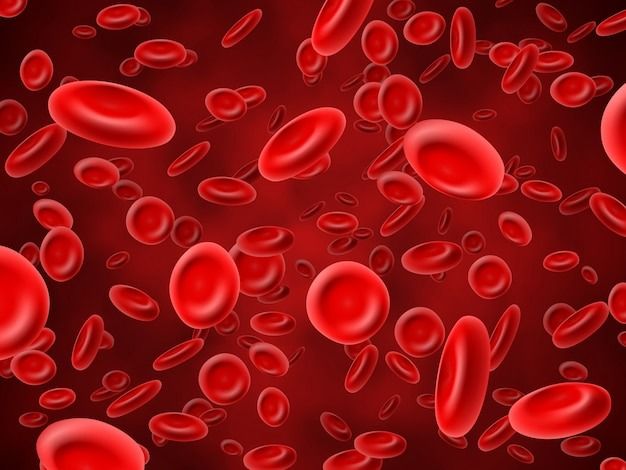Overview
Lung cancer is emerging as the leading cause of cancer deaths worldwide. As of 2023, an estimated 238,340 new cases of lung cancer have been diagnosed in the US, with about 127,070 expected deaths. In India, lung cancer constitutes approximately 7% of all new cancer cases, contributing to 9% of all cancer-related deaths.
According to GLOBOCAN, 2020 estimate from the International Agency for Research on Cancer, lung cancer claimed approximately 1.8 million lives in 2020.
The survival rate for lung cancer depends on the stage of the disease. Lung cancer is often diagnosed at advanced stages when treatment options have already decreased. In such cases, doctors may recommend a lung transplant as a cure for your localized lung cancer. However, many factors can alter this situation.
Let’s delve into the article to get more information about it.
A lung transplant is a surgical procedure in which one or both diseased or failing lungs are replaced with healthy lungs from a donor. It is done for severe lung diseases when other treatments have failed.
There are three main types of lung transplants:
- Single lung transplant
- Double lung transplant
- Heart-lung transplant
If you're wondering whether you might be eligible for a lung transplant for lung cancer, here's what you can consider.
Your health is too important to ignore – schedule your appointment now.
How do I know if I am eligible for a lung transplant for lung cancer?
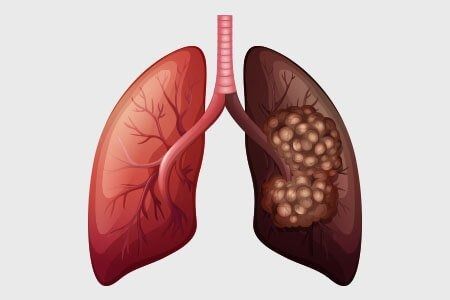
- Cancer Stage: The first thing to know is the stage of your lung cancer. Lung transplants are usually considered for those with early-stage lung cancer (Stage I or II) that hasn't spread beyond the lungs.
- Treatment Response: If you've tried other treatments like surgery, radiation, or chemotherapy and they haven't been effective, then lung transplant is a potential option for you.
- Tumor Size and Location: The size and location of your lung tumors are significant factors. If they are in a position that can be surgically removed, it may improve your eligibility for lung transplant.
- No Distant Spread: Lung cancer that has spread to other organs or distant lymph nodes is often disqualified for lung transplant.
- Overall Health: Apart from lung cancer, your other health condition also matters in handling the transplant surgery and recovery.
- Infections: Active infections, especially in your lungs, may affect your eligibility due to the increased risk of complications after the transplant.
Apart from these, your heart, liver, kidneys, and other vital organs should be functioning reasonably well. Remember, eligibility can differ from one transplant center to another, and the final decision will be made by your medical experts.
How successful is a lung transplant as a treatment option for lung cancer?
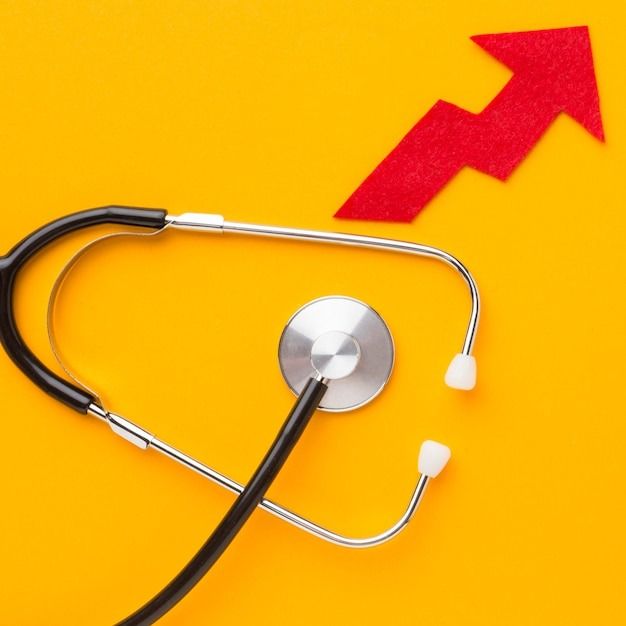
Studies indicate that, when it comes to lung transplants following lung cancer, there are encouraging statistics to consider:
Overall Survival: On average, about 39% to 57% of individuals who undergo lung transplants after lung cancer, can expect to survive for at least 5 years.
Cancer-Specific Survival: When looking specifically at cancer survival (meaning survival without other causes of death), the rates are even more promising, ranging from 50% to 86% at the 5 year mark.
Survival rates are high if the transplant is done at a relatively early stage of the disease. The success rates are lower for patients with more advanced lung cancer.
Would you like to know about the factors affecting the success of lung transplants for lung cancer treatment? Here we have complied the list for you.
The success of a lung transplant after lung cancer can be influenced by several factors. These factors can impact the outcome and overall prognosis of the transplant. Here are some key considerations:
- Cancer Stage: The stage at which lung cancer is diagnosed plays a crucial role. Transplants are more successful when lung cancer is detected at an early stage (Stage I or II) and has not spread beyond the lungs. Advanced-stage cancer (Stage III or IV) may reduce the chances of success.
- Response to Prior Treatment: The effectiveness of prior cancer treatments, such as surgery, radiation therapy, or chemotherapy, can impact transplant success. A poor response to these treatments may indicate a higher risk of cancer recurrence.
- Tumor Size and Location: The size and location of the lung tumors are significant factors. Tumors that are difficult to remove during the transplant surgery or pose a higher risk of recurrence may affect success rates.
- Overall Health: The overall health of the transplant recipient is critical. Good physical condition is essential for withstanding the transplant surgery and the post-transplant recovery process.
- Psychosocial Factors: The patient's mental and emotional readiness to cope with the transplant process and adhere to post-transplant care and lifestyle changes are important.
- Infection Status: Active infections, especially in the lungs, can increase the risk of complications after a lung transplant, affecting the chances of success.
- Organ Compatibility: Finding a suitable donor lung match is crucial. Organ rejection can occur if there is a mismatch between the donor and recipient, which can impact transplant success.
- Transplant Center Expertise: The experience and expertise of the transplant center and its medical team can significantly influence the success of the procedure.
- Follow-Up Care: Ongoing post-transplant care and monitoring are vital for early detection of complications or rejection and for ensuring the long-term success of the transplant.
It's important to note that each case is unique, and success rates can vary widely depending on these factors. You and your healthcare teams should thoroughly assess the individual's eligibility and risk factors before deciding on a lung transplant after lung cancer.
Take charge of your health and your life. Contact us today!
What is the recovery process after a lung transplant for lung cancer?
| Stages of Recovery | Recovery process |
| Immediate Post-Transplant | You will be monitored in the ICU. |
| Early Hospital Stay |
|
| First Few Weeks Post-Transplant |
|
| First 3-6 Months Post-Transplant |
|
| 6 Months to 1 Year Post-Transplant |
|
| Long-Term Post-Transplant |
|
How long does it take to receive a lung transplant for lung cancer?
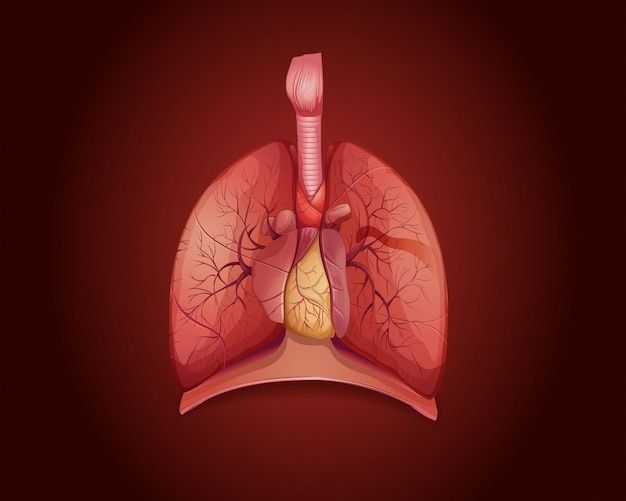
It depends on the following variables:
- Waiting list: You will become eligible when you are added to the waiting list for donor lungs.
- Donor Availability: Your waiting time will depend on matching donor organs and recipient criteria.
- Urgency and Priority: You will be prioritized if your condition is severe.
- Location of your transplant centre
- Protocols of your transplant centre affect the timings.
- Living donor options: If available, will help to decrease waiting time
Please note: Depending on all these factors, your waiting period can range from several months to even years.
Risks and complications associated with a lung transplant for lung cancer
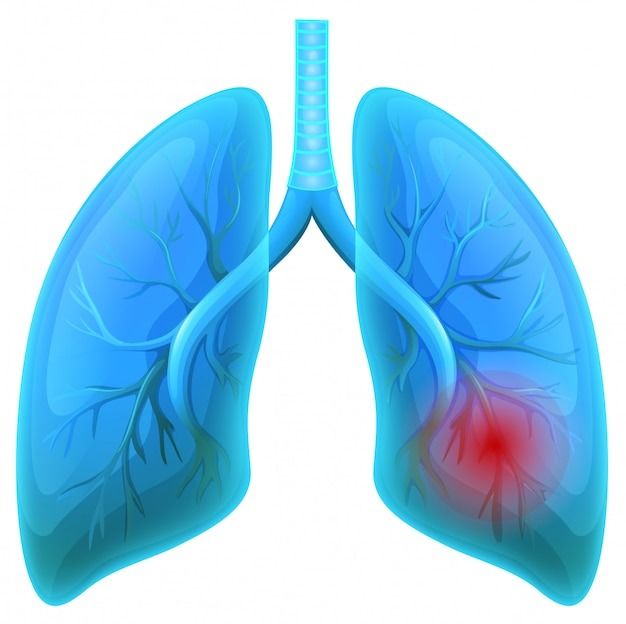
- Organ Rejection: Your body may reject the transplanted lung
- Infection: You may face a severe risk of infections due to a suppressed immune system.
- Cancer Recurrence: Lung cancer after lung transplant or elsewhere.
- Graft Failure: Your transplanted lung may not function properly, thus requiring retransplantation.
- Medication Side Effects: Immunosuppressants can have adverse effects on your various organs.
- Chronic Rejection: Over time, you can see gradual damage to the transplanted lung.
- Organ Shortage: You could face potential delays or unavailability of suitable donor organs.
- Surgical Complications: You can see bleeding or infection.
- Long-Term Health Risks: You could face the risk of osteoporosis, diabetes, and other long-term health issues due to medications.
- Psychological Impact: You could face emotional and psychological challenges during recovery and adjustment.
Take the first step to recovery. Get in touch with us for your treatment.
What is the long-term possibility for patients who undergo a lung transplant for lung cancer?
Your long-term outcome will be affected by:
- Survival Rates: Your survival rates are influenced by factors like cancer stage and overall health.
- Cancer Recurrence: You have a risk of lung cancer after lung transplant, or the cancer can return elsewhere in the body.
- Immunosuppressive Medications: You have to take them lifelong to prevent organ rejection, which can have side effects.
- Regular Monitoring: You need regular medical follow-ups and screenings.
- Quality of Life: When your lung function improves, you can lead a better quality of life.
Can a lung transplant cure lung cancer?
A lung transplant is not a primary treatment for lung cancer. Lung cancer is typically treated with surgery, radiation therapy, chemotherapy, targeted therapy, or immunotherapy, depending on the stage and type of cancer. A lung transplant is specifically recommended if you have severe lung disease or in case you didn't get a good response from other treatments.
Lifestyle changes or precautions that need to be taken after a lung transplant for lung cancer
- Take prescribed medicines
- Prevent infections
- Stay vaccinated
- Regular Check-ups
- Low sodium balanced diet
- Exercise (as per doctor's recommendation)
- Avoid alcohol and smoking
- Minimize your exposure to pollutants and irritants
- Psychological support
- Travel cautiously
- Continue cancer screenings
How do organ donation and matching for lung transplants work in lung cancer cases?
Donor Identification: Suitable lung donors are identified and assessed for you.
Organ Allocation: A donor-recipient match is done and its compatibility will determine your lung allocation.
Waiting List: If you are eligible, then you will be put on a waiting list for a compatible donor lung.
Transplant Surgery: You will undergo surgery when a match is found.
Be rest assured that this process will aim for efficient and compatible matches while prioritizing your health.
References:
https://acsjournals.onlinelibrary.wiley.com/doi/full/10.3322/caac.21660
https://www.who.int/news-room/fact-sheets/detail/lung-cancer

